- Forschung & Lehre
- Wissenschaftliche Graduierung

Formulare und Ordnungen
- Satzung zur Neuregelung des Promotionswesens der Universitätsmedizin Greifswald vom 24.08.2020, 1. Änd. 23.11.2021
- Erste Satzung zur Änderung der Promotionsordnung PhD, MD/PhD und DMD/PhD vom 23.11.2021
Dr. med. und Dr. med. dent.
- Promotionsordnung Dr. med., Dr. med. dent. vom 24.08.2020 (Auszug aus der Satzung zur Neuregelung des Promotionswesens an der Universitätsmedizin Greifswald)
- Betreuungsvereinbarung
- Merkblatt (einzureichende Unterlagen, Vorlagen Titelseite, Angabe von Zitaten, eidesstattliche Erklärung, Erklärung über Anteile in Gemeinschaftsarbeiten)
- Antrag auf Zulassung zum Promotionsverfahren (FIS)
- Rahmen zum Abfassen einer kumulativen Dissertation
PhD, MD/PhD und DMD/PhD
- Promotionsordnung PhD, MD/PhD, DMD/PhD vom 24.08.2020 (Auszug aus der Satzung zur Neuregelung des Promotionswesens an der Universitätsmedizin Greifswald), 1. Änd. 23.11.2021, Stand der Anlagen: 31.01.2023
- Vorlagen Zulassung zum Promotionsverfahren
- Antrag auf Anerkennung besuchter (Lehr-)Veranstaltungen bitte dem Antrag auf Zulassung beifügen, wenn Sie zum PhD, MD/PhD, DMD/PhD wechseln und die Anrechnung von (Lehr-)Veranstaltungen beantragen möchten
- ToDos im Promotionsprogramm (nach der Zulassung)
- Merkblatt für Mitglieder eines Dissertationskomitees
- Progress Report (Protokollvorlage) für Treffen mit dem Dissertationskomitee
- Laufzettel für Teilnahmenachweis an Vorlesungen der UMG und Universität Greifswald
- Merkblatt zu Publikationsleistungen
- Antrag auf Eröffnung des Promotionsverfahrens (FIS)
- Hinweisblatt Einreichung der Dissertation (Eröffnung des Promotionsverfahrens)
- Vorlagen Dissertation
- Forschungsinformationssystem (FIS)
- Promotionsseite der Universität (Einschreibung Promotionsstudium)
- Universitätsbibliothek (Einreichen der Pflichtexemplare)
- Stipendien und Förderung an der UMG
- Förderung für Promovierende an der Universität (inkl. externe Ausschreibungen)
- Graduiertenakademie der Universität
- Gute wissenschaftliche Praxis (Ansprechpersonen Universität Greifswald)
- UMG Promotionsdatenbank (zu vergebende Promotionsthemen)
Universitätsmedizin Greifswald - Cookie Settings
Unsere Webseite verwendet Cookies. Diese haben zwei Funktionen: Zum einen sind sie erforderlich für die grundlegende Funktionalität unserer Website. Zum anderen können wir mit Hilfe der Cookies unsere Inhalte für Sie immer weiter verbessern. Hierzu werden pseudonymisierte Daten von Website-Besuchern gesammelt und ausgewertet. Das Einverständnis in die Verwendung der Cookies können Sie jederzeit widerrufen. Weitere Informationen zu Cookies auf dieser Website finden Sie in unserer Datenschutzerklärung und zu uns im Impressum .
- Prospective Students
- Researchers
- Telephone Directory
- Complaints and Conflict Management
- International Office
- Quick Access
- Target Groups
- Junior Researchers
- Graduate Academy
Doctorate in Greifswald
- Doctorate Paths
- Doctoral Post
- Support and network opportunities
- Good Supervision
- Good Scientific Practice
- Doctorate and Family
Perspectives After the Doctorate
All five faculties of the University of Greifswald offer the opportunity to complete a doctorate. Here you can find the most important facts about the general conditions for a doctorate and which university institutions can support you.

Which Doctorate Paths Exist?
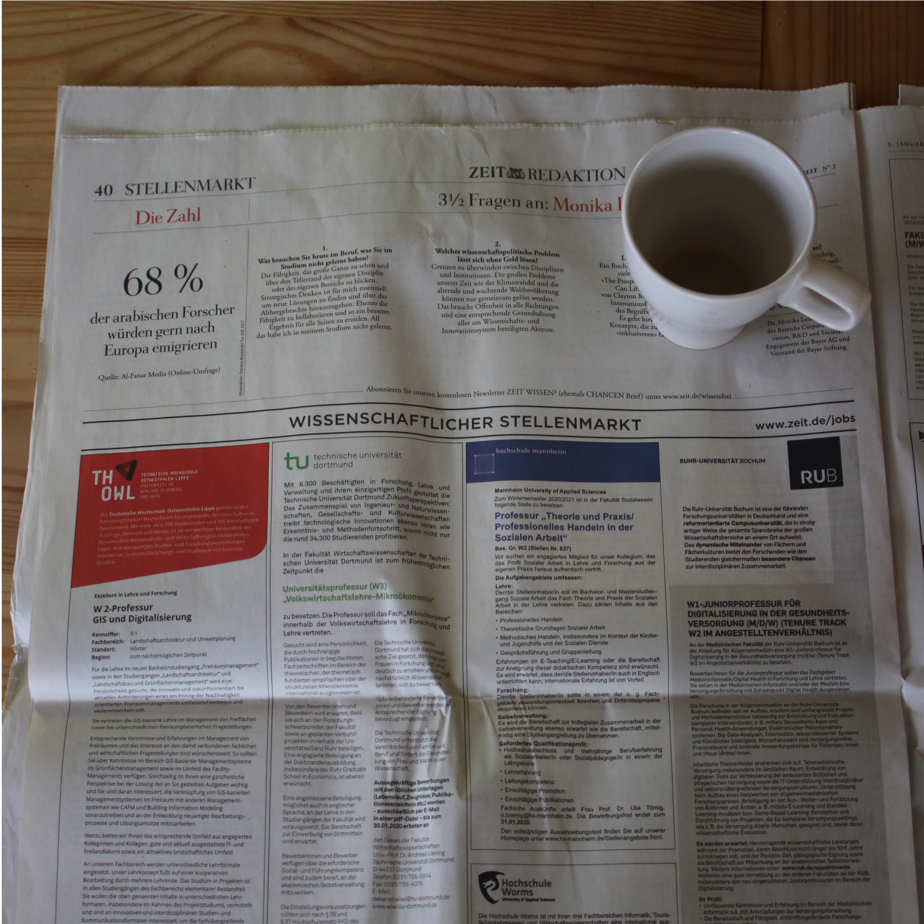
How do I find a Suitable Doctoral Post?

How Do I Finance My Doctoral Studies?
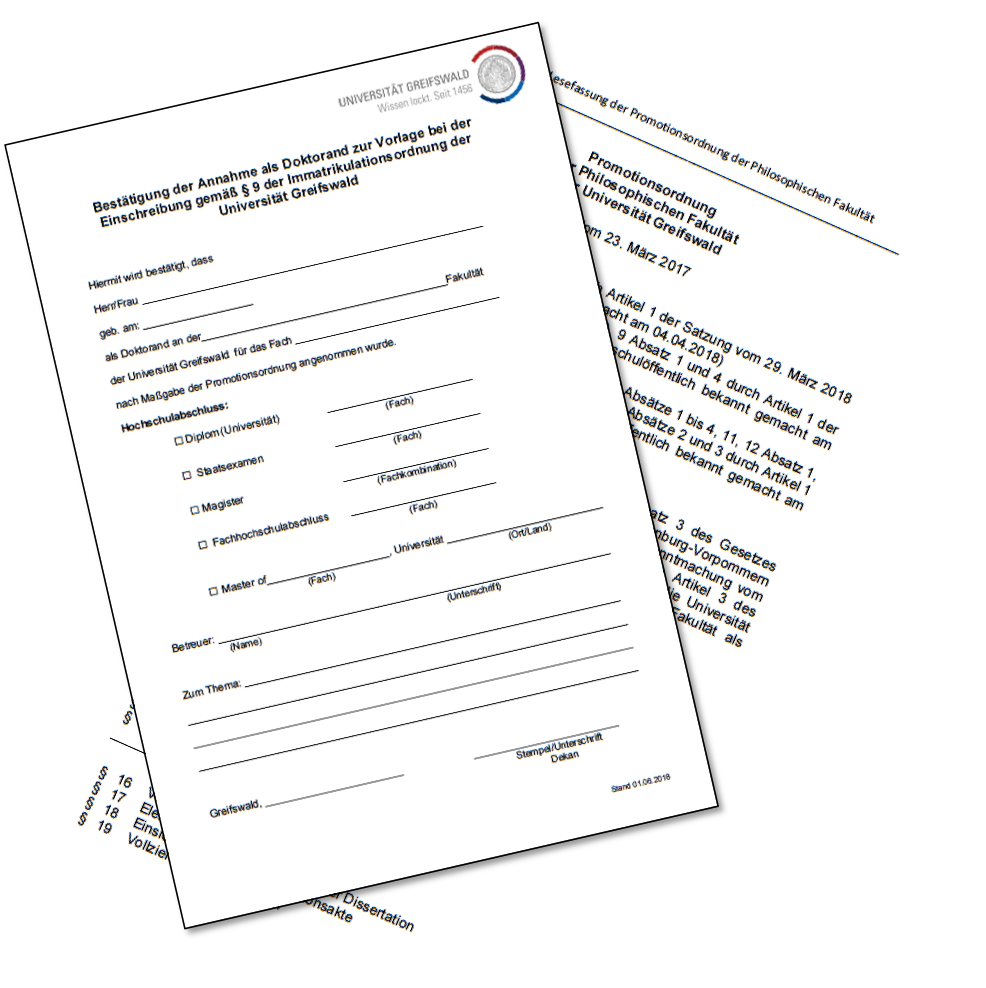
Which Formal Requirements Do I Need to Pay Attention to?

Which Institutions of the University of Greifswald Support You During Your Doctoral Studies?
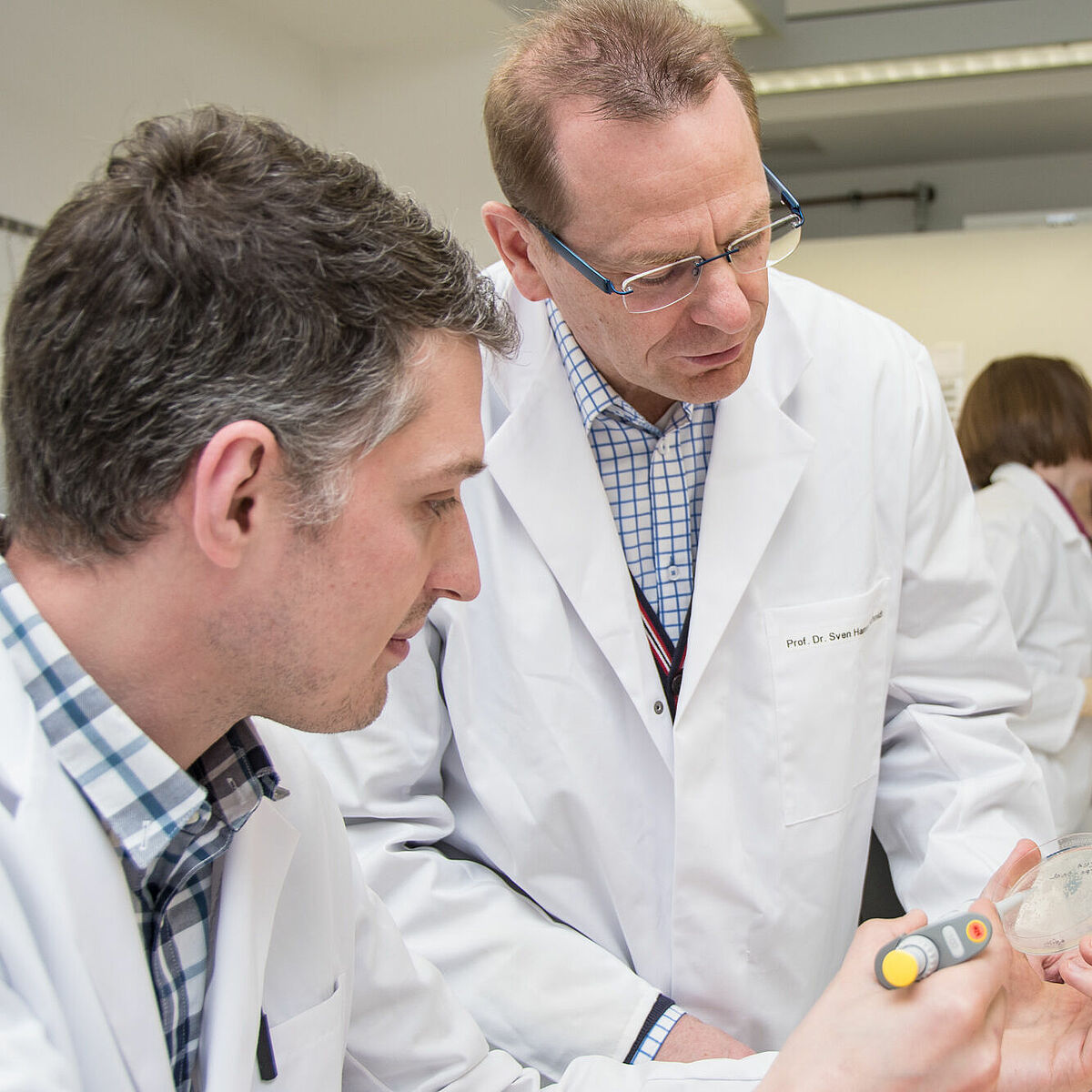

Principles of Good Supervision
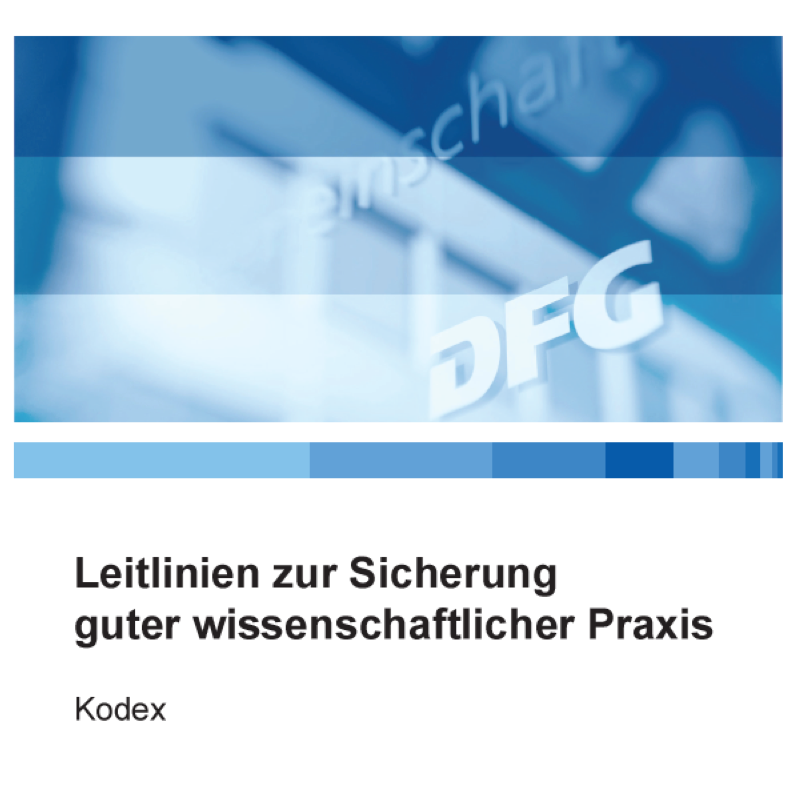
What is Good Scientific Practice?

Is It Possible to Combine Completing a Doctorate with Having a Family?

Responsible for these pages
Graduate Academy of the University of Greifswald Dr. Michael G. Schöner Tel.: +49 3834 420 1618
- Download PDF
- CME & MOC
- Share X Facebook Email LinkedIn
- Permissions
Prognostic Value of Cardiovascular Biomarkers in the Population
- 1 Department of Cardiology, University Heart and Vascular Center Hamburg, University Medical Center Hamburg-Eppendorf, Hamburg, Germany
- 2 Center for Population Health Innovation, University Heart and Vascular Center Hamburg, University Medical Center Hamburg-Eppendorf, Hamburg, Germany
- 3 German Center for Cardiovascular Research, Partner Site Hamburg/Kiel/Lübeck, Hamburg, Germany
- 4 Department of Epidemiology and Preventive Medicine, School of Public Health and Preventive Medicine, Monash University, Melbourne, Australia
- 5 Center for Cardiometabolic Disease Prevention, Department of Medicine, College of Medicine, Baylor University, Houston, Texas
- 6 Department of Medicine, Boston Medical Center, Chobanian and Avedisian School of Medicine, Boston University, Boston, Massachusetts
- 7 Department of Epidemiology, School of Public Health, Boston University, Boston, Massachusetts
- 8 Department of Epidemiology and Prevention, IRCCS Neuromed, Pozzilli, Italy
- 9 Department of Internal Medicine, UT Southwestern Medical Center, Dallas, Texas
- 10 Inova Heart and Vascular Institute, Falls Church, Virginia
- 11 Mediterranea Cardiocentro, Naples, Italy
- 12 Department of Cardiovascular, Endocrine-Metabolic Diseases, and Aging, National Institute of Health, Rome, Italy
- 13 Department of Internal Medicine B, University Greifswald, Greifswald, Germany
- 14 German Center for Cardiovascular Research, Partner Site Greifswald, University Medicine, Greifswald, Germany
- 15 Departments of Medical Sciences and Cardiology, Uppsala University, Uppsala, Sweden
- 16 Department of Clinical Sciences, Lund University, Malmö, Sweden
- 17 Research Centre in Epidemiology and Preventive Medicine, Department of Medicine and Surgery, University of Insubria, Varese, Italy
- 18 Department of Nephrology, University Medical Center Groningen, Groningen, the Netherlands
- 19 Istituto Superiore di Sanità, Rome, Italy
- 20 Department of Public Health and Caring Sciences/Geriatrics, Uppsala University, Uppsala, Sweden
- 21 Department of Clinical Physiology and Centre for Clinical Research, Västmanland County Hospital, Uppsala University, Västerås, Sweden
- 22 Department of Medicine and Surgery, Libera Università Mediterranea, Casamassima, Italy
- 23 Department of Public Health, Faculty of Health and Medical Sciences, University of Copenhagen, Copenhagen, Denmark
- 24 Centre for Clinical Research and Prevention, BFH Hospital, Copenhagen, Denmark
- 25 UKCRC Centre of Excellence for Public Health, Queens University of Belfast, Belfast, Northern Ireland
- 26 German Heart Center, Technical University of Munich, Munich, Germany
- 27 Institute of Epidemiology and Medical Biometry, University of Ulm, Ulm, Germany
- 28 German Center for Cardiovascular Disease Research, Partner Site Munich Heart Alliance, Munich, Germany
- 29 Finnish Institute for Health and Welfare, Helsinki, Finland
- 30 Nutrition and Health Innovation Research Institute, School of Medical and Health Sciences, Edith Cowan University, Perth, Australia
- 31 Medical School, University of Western Australia, Perth
- 32 Centre for Kidney Research, Children’s Hospital at Westmead, School of Public Health, Sydney Medical School, University of Sydney, Sydney, Australia
- 33 Division of Medicine, Department of Cardiology, Akershus University Hospital, Lørenskog, Norway
- 34 K. G. Jebsen Center for Cardiac Biomarkers, Institute of Clinical Medicine, Faculty of Medicine, University of Oslo, Oslo, Norway
- 35 Institute for Clinical Chemistry and Laboratory Medicine, University Medicine Greifswald, Greifswald, Germany
- 36 Division of Medicine, Turku University Hospital, Turku, Finland
- 37 Department of Internal Medicine, University of Turku, Turku, Finland
- 38 Cardiology Section, Department of Internal Medicine, Holbaek Hospital, Holbaek, Denmark
- 39 Department of Regional Health, University of Southern Denmark, Odense
- 40 Department of Public Health and Clinical Medicine, Section of Medicine, Umeå University, Umeå, Sweden
- 41 Institute of Epidemiology, Helmholtz Zentrum München, German Research Center for Environmental Health, Neuherberg, Germany
- 42 Institute for Medical Information Processing, Biometry, and Epidemiology, Faculty of Medicine, Ludwig-Maximilians-Universität, Munich, Germany
- 43 University of Texas School of Public Health and the University of Texas Health Science Center, San Antonio
- 44 Catalan Department of Health, Barcelona, Spain
- 45 Wallenberg Laboratory and Department of Molecular and Clinical Medicine, Institute of Medicine, Gothenburg University, Gothenburg, Sweden
- 46 Cardiovascular Epidemiology Unit, Institute of Cardiovascular Research, University of Dundee, Dundee, Scotland
- 47 Department of Cardiology, Pulmonology, and Nephrology, School of Medicine, Yamagata University, Yamagata, Japan
- 48 Institute for Cardiovascular Regeneration, Goethe University, Frankfurt, Germany
- 49 German Center for Cardiovascular Disease Research, Partner Site Rhine-Main, Mainz, Germany
- Editorial Can Cardiovascular Risk Assessment Be Improved in the 21st Century? Thomas A. Gaziano, MD, MSc; J. Michael Gaziano, MD, MPH JAMA
- Original Investigation Cardiovascular Biomarkers in the Early Discrimination of Type 2 Myocardial Infarction Thomas Nestelberger, MD; Jasper Boeddinghaus, MD; Pedro Lopez-Ayala, MD; Thomas E. Kaier, MD, MBA, PhD; Michael Marber, MBBS, PhD; Vincent Gysin, MD; Luca Koechlin, MD; Ana Yufera Sanchez, MD; Maria Rubini Giménez, MD; Desiree Wussler, MD; Joan Elias Walter, MD; Ivo Strebel, MSc; Tobias Zimmermann, MD; Noemi Glarner, MD; Òscar Miró, MD; F. Javier Martin-Sanchez, MD; Tatjana Zehnder, MS; Raphael Twerenbold, MD; Dagmar I. Keller, MD; Christian Mueller, MD; APACE Investigators; Hadrien Schoepfer; Petra Hillinger; Paul David Ratmann; Danielle M. Gualandro; Tania Coscia; Valentina Troester; Juliane Gehrke; Velina Widmer; Alexandra Prepoudis; Katharina Rentsch; Patrick Badertscher; Karin Wildi; Christian Puelacher; Eliska Potlukova; Michael Freese; Eleni Michou; Arnold von Eckardstein; Damian Kawecki; Beata Morawiec; Piotr Muzyk; Franz Bürgler; Nicolas Geigy; Tobias Reichlin; Samyut Shrestha; Beatriz López; Helena Mañé Cruz; Carolina Isabel Fuenzalida Inostroza; Esther Rodgriguez Adrada; Miguel Angel García Briñón; Jiri Parenica; Andreas Buser JAMA Cardiology
Question What is the value of cardiovascular biomarkers when added to established risk factors to predict incident cardiovascular events in the population?
Findings In this large, individual-level data analysis from 28 general population–based cohorts from 12 countries, high-sensitivity cardiac troponins I and T, B-type natriuretic peptide, and high-sensitivity C-reactive protein were associated with fatal and nonfatal events.
Meaning The addition of biomarkers to established risk factors leads to only a small improvement in risk prediction metrics for atherosclerotic cardiovascular disease, but was more favorable for heart failure and mortality.
Importance Identification of individuals at high risk for atherosclerotic cardiovascular disease within the population is important to inform primary prevention strategies.
Objective To evaluate the prognostic value of routinely available cardiovascular biomarkers when added to established risk factors.
Design, Setting, and Participants Individual-level analysis including data on cardiovascular biomarkers from 28 general population–based cohorts from 12 countries and 4 continents with assessments by participant age. The median follow-up was 11.8 years.
Exposure Measurement of high-sensitivity cardiac troponin I, high-sensitivity cardiac troponin T, N-terminal pro-B-type natriuretic peptide, B-type natriuretic peptide, or high-sensitivity C-reactive protein.
Main Outcomes and Measures The primary outcome was incident atherosclerotic cardiovascular disease, which included all fatal and nonfatal events. The secondary outcomes were all-cause mortality, heart failure, ischemic stroke, and myocardial infarction. Subdistribution hazard ratios (HRs) for the association of biomarkers and outcomes were calculated after adjustment for established risk factors. The additional predictive value of the biomarkers was assessed using the C statistic and reclassification analyses.
Results The analyses included 164 054 individuals (median age, 53.1 years [IQR, 42.7-62.9 years] and 52.4% were women). There were 17 211 incident atherosclerotic cardiovascular disease events. All biomarkers were significantly associated with incident atherosclerotic cardiovascular disease (subdistribution HR per 1-SD change, 1.13 [95% CI, 1.11-1.16] for high-sensitivity cardiac troponin I; 1.18 [95% CI, 1.12-1.23] for high-sensitivity cardiac troponin T; 1.21 [95% CI, 1.18-1.24] for N-terminal pro-B-type natriuretic peptide; 1.14 [95% CI, 1.08-1.22] for B-type natriuretic peptide; and 1.14 [95% CI, 1.12-1.16] for high-sensitivity C-reactive protein) and all secondary outcomes. The addition of each single biomarker to a model that included established risk factors improved the C statistic. For 10-year incident atherosclerotic cardiovascular disease in younger people (aged <65 years), the combination of high-sensitivity cardiac troponin I, N-terminal pro-B-type natriuretic peptide, and high-sensitivity C-reactive protein resulted in a C statistic improvement from 0.812 (95% CI, 0.8021-0.8208) to 0.8194 (95% CI, 0.8089-0.8277). The combination of these biomarkers also improved reclassification compared with the conventional model. Improvements in risk prediction were most pronounced for the secondary outcomes of heart failure and all-cause mortality. The incremental value of biomarkers was greater in people aged 65 years or older vs younger people.
Conclusions and Relevance Cardiovascular biomarkers were strongly associated with fatal and nonfatal cardiovascular events and mortality. The addition of biomarkers to established risk factors led to only a small improvement in risk prediction metrics for atherosclerotic cardiovascular disease, but was more favorable for heart failure and mortality.
- Editorial Can Cardiovascular Risk Assessment Be Improved in the 21st Century? JAMA
Read More About
Neumann JT , Twerenbold R , Weimann J, et al. Prognostic Value of Cardiovascular Biomarkers in the Population. JAMA. Published online May 13, 2024. doi:10.1001/jama.2024.5596
Manage citations:
© 2024
Artificial Intelligence Resource Center
Cardiology in JAMA : Read the Latest
Browse and subscribe to JAMA Network podcasts!
Others Also Liked
Select your interests.
Customize your JAMA Network experience by selecting one or more topics from the list below.
- Academic Medicine
- Acid Base, Electrolytes, Fluids
- Allergy and Clinical Immunology
- American Indian or Alaska Natives
- Anesthesiology
- Anticoagulation
- Art and Images in Psychiatry
- Artificial Intelligence
- Assisted Reproduction
- Bleeding and Transfusion
- Caring for the Critically Ill Patient
- Challenges in Clinical Electrocardiography
- Climate and Health
- Climate Change
- Clinical Challenge
- Clinical Decision Support
- Clinical Implications of Basic Neuroscience
- Clinical Pharmacy and Pharmacology
- Complementary and Alternative Medicine
- Consensus Statements
- Coronavirus (COVID-19)
- Critical Care Medicine
- Cultural Competency
- Dental Medicine
- Dermatology
- Diabetes and Endocrinology
- Diagnostic Test Interpretation
- Drug Development
- Electronic Health Records
- Emergency Medicine
- End of Life, Hospice, Palliative Care
- Environmental Health
- Equity, Diversity, and Inclusion
- Facial Plastic Surgery
- Gastroenterology and Hepatology
- Genetics and Genomics
- Genomics and Precision Health
- Global Health
- Guide to Statistics and Methods
- Hair Disorders
- Health Care Delivery Models
- Health Care Economics, Insurance, Payment
- Health Care Quality
- Health Care Reform
- Health Care Safety
- Health Care Workforce
- Health Disparities
- Health Inequities
- Health Policy
- Health Systems Science
- History of Medicine
- Hypertension
- Images in Neurology
- Implementation Science
- Infectious Diseases
- Innovations in Health Care Delivery
- JAMA Infographic
- Law and Medicine
- Leading Change
- Less is More
- LGBTQIA Medicine
- Lifestyle Behaviors
- Medical Coding
- Medical Devices and Equipment
- Medical Education
- Medical Education and Training
- Medical Journals and Publishing
- Mobile Health and Telemedicine
- Narrative Medicine
- Neuroscience and Psychiatry
- Notable Notes
- Nutrition, Obesity, Exercise
- Obstetrics and Gynecology
- Occupational Health
- Ophthalmology
- Orthopedics
- Otolaryngology
- Pain Medicine
- Palliative Care
- Pathology and Laboratory Medicine
- Patient Care
- Patient Information
- Performance Improvement
- Performance Measures
- Perioperative Care and Consultation
- Pharmacoeconomics
- Pharmacoepidemiology
- Pharmacogenetics
- Pharmacy and Clinical Pharmacology
- Physical Medicine and Rehabilitation
- Physical Therapy
- Physician Leadership
- Population Health
- Primary Care
- Professional Well-being
- Professionalism
- Psychiatry and Behavioral Health
- Public Health
- Pulmonary Medicine
- Regulatory Agencies
- Reproductive Health
- Research, Methods, Statistics
- Resuscitation
- Rheumatology
- Risk Management
- Scientific Discovery and the Future of Medicine
- Shared Decision Making and Communication
- Sleep Medicine
- Sports Medicine
- Stem Cell Transplantation
- Substance Use and Addiction Medicine
- Surgical Innovation
- Surgical Pearls
- Teachable Moment
- Technology and Finance
- The Art of JAMA
- The Arts and Medicine
- The Rational Clinical Examination
- Tobacco and e-Cigarettes
- Translational Medicine
- Trauma and Injury
- Treatment Adherence
- Ultrasonography
- Users' Guide to the Medical Literature
- Vaccination
- Venous Thromboembolism
- Veterans Health
- Women's Health
- Workflow and Process
- Wound Care, Infection, Healing
- Register for email alerts with links to free full-text articles
- Access PDFs of free articles
- Manage your interests
- Save searches and receive search alerts
MD, PhD Graduates Urged to Become Change Makers
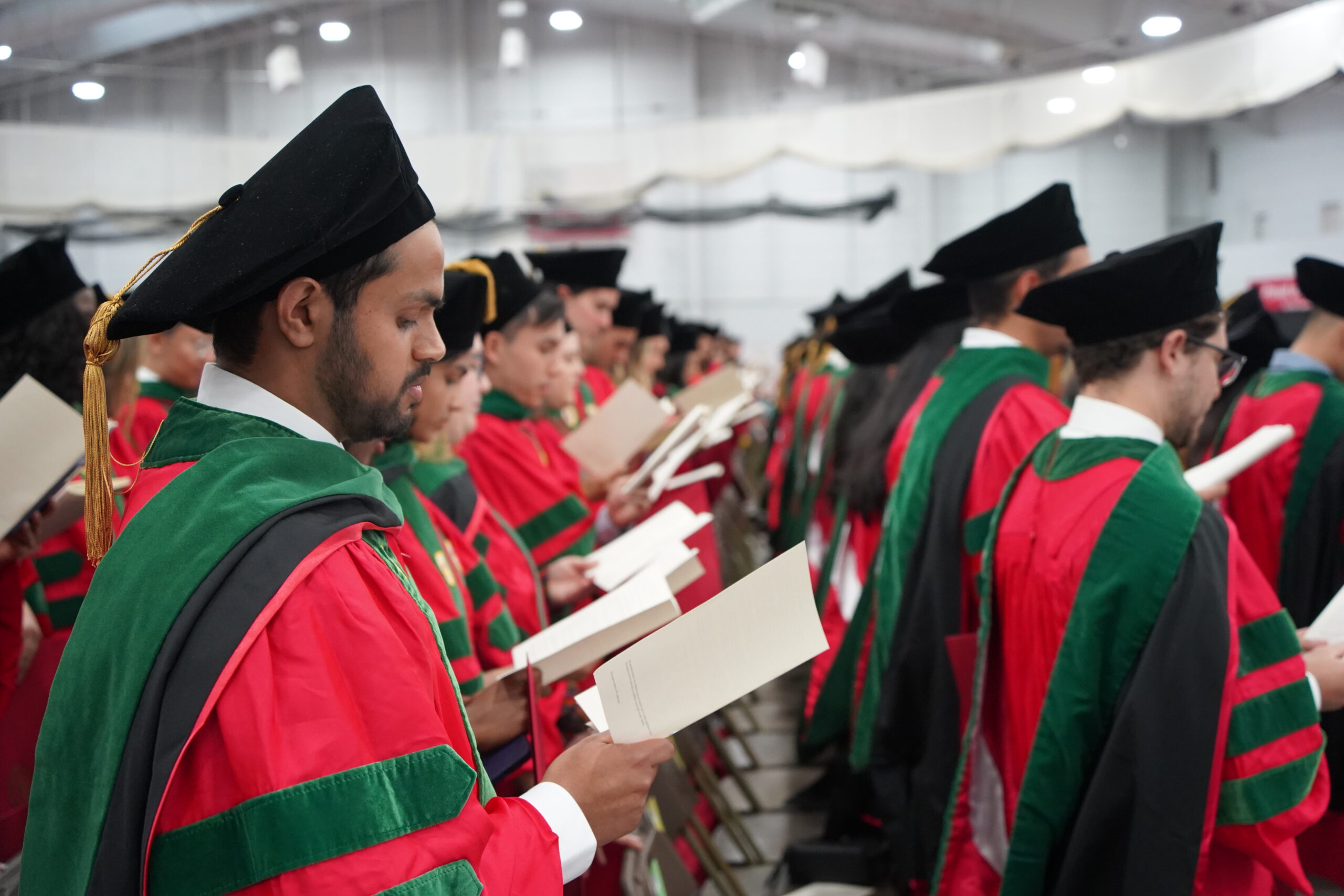
With so much unrest around the world, natural disasters and medical challenges on a global scale, “We hope that you will become leaders in solving these issues,” said Antman.
The May 16 convocation at BU’s Track & Tennis Center bestowed 35 PhD, 144 MD, four combined MD/PhDs, three combined MD/MBAs, one MD/JD and two MD/OMFS (Oral Maxillofacial Surgery) degrees. Fifteen students earned cum laude honors, five magna cum laude and two students, Jonathan Berlowitz and Sarah Golden, graduated summa cum laude .
“The faculty know that you will use the knowledge, the research and clinical skills that you have mastered here to make a difference in the world going forward,” said C. James McKnight , PhD, associate dean and provost of Graduate Medical Sciences.
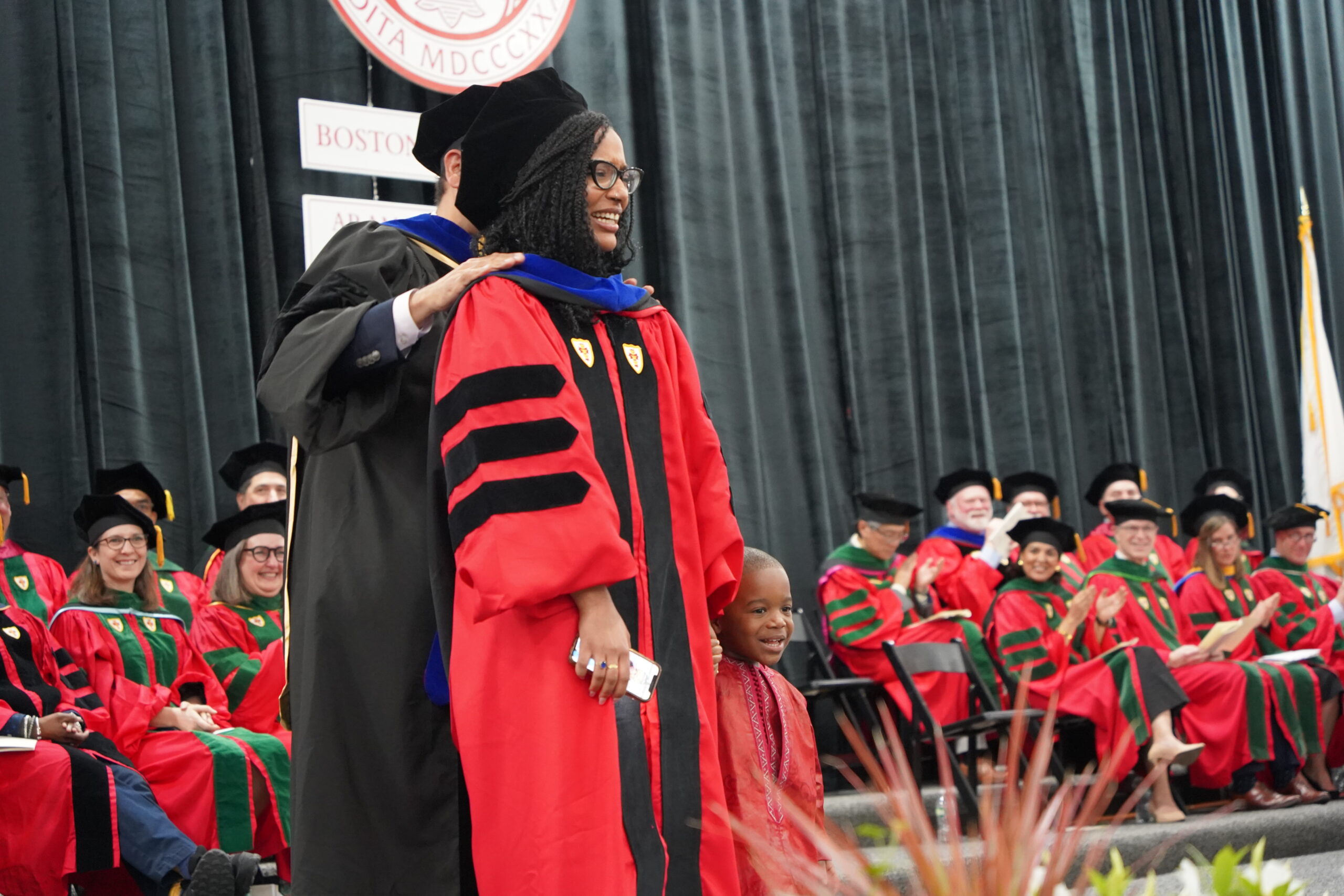
Two student speakers were chosen by their peers – Josiane Fofana was selected by PhD students.
“(I am) truly humbled, because humility reminds me of how far I’ve come and how much more there is to accomplish,” said Fofana who grew up in Senegal, moving to Boston in 2011 where she completed an associate degree in biological sciences at Bunker Hill Community College, followed by a BS in biochemistry from Brandeis University and finally her PhD in virology, microbiology & immunology at BU.
She asked students to look beyond their degree.
“In the pursuit of knowledge, we often overlook the importance of emotional intelligence,” said Fofana. “Brilliance devoid of empathy just renders us empty, contributing to the injustice in this world.”
Fofana is the mother of a 3-year-old and founded a non-profit providing quality and STEM-based education to children in Dakar, Senegal. She is pursuing a postdoctoral position at the University of Ghana as a Fogarty Global Health Fellow.
“Do not think that the degree or leadership position you’re holding grants you the ultimate wisdom on every issue,” Fofana cautioned. “Remain open to others’ experiences…embrace discomfort in order to grow.”
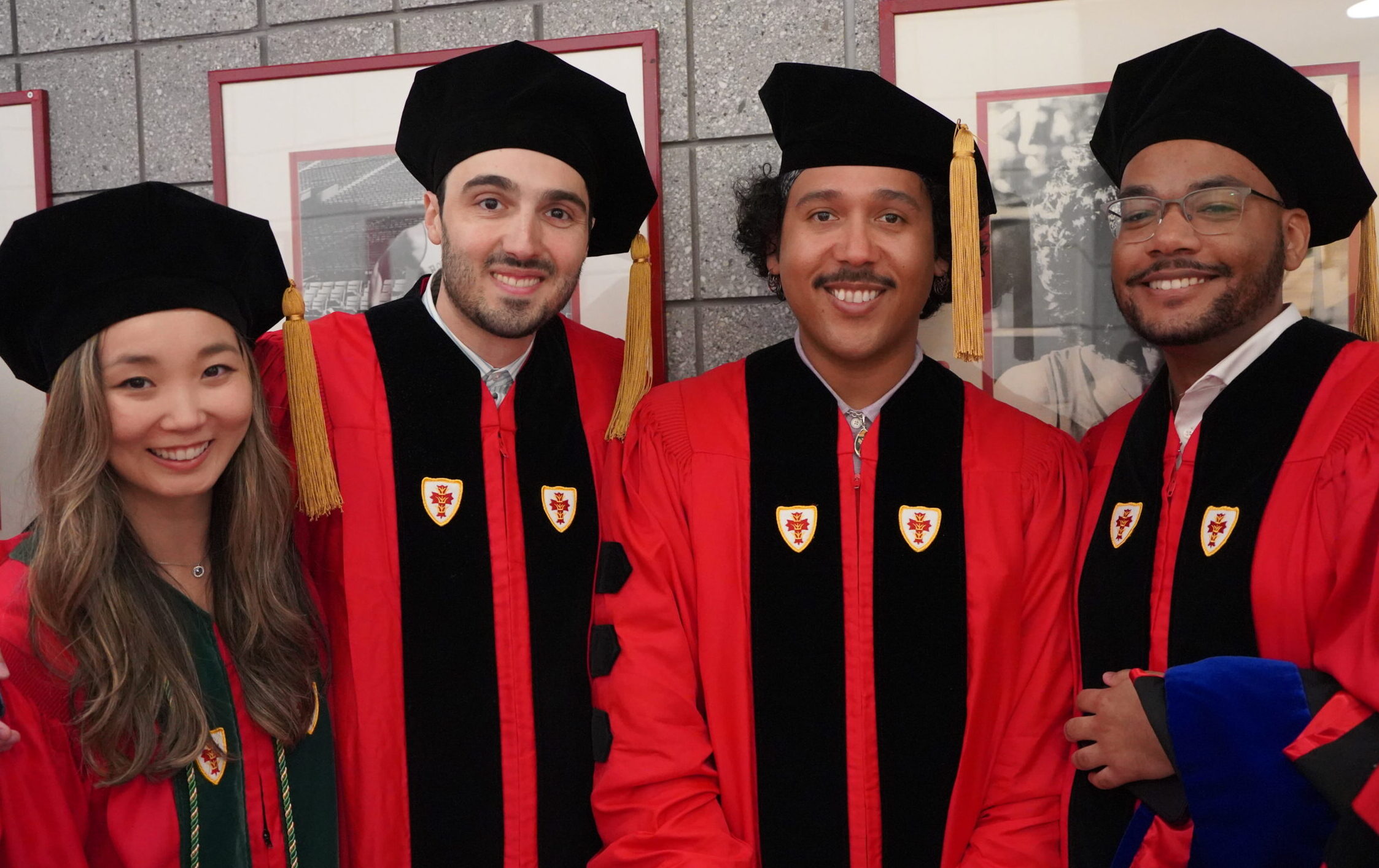
“One of the most beautiful aspects of our journey together has been the friendships we’ve formed and the shared experiences that have strengthened our bond,” said Merriman. “From our first days of orientation to the challenges of clinical rotations, we’ve grown together, supporting each other every step of the way.”
“I know…that you have the minds, the hearts and the souls of change makers,” she said.
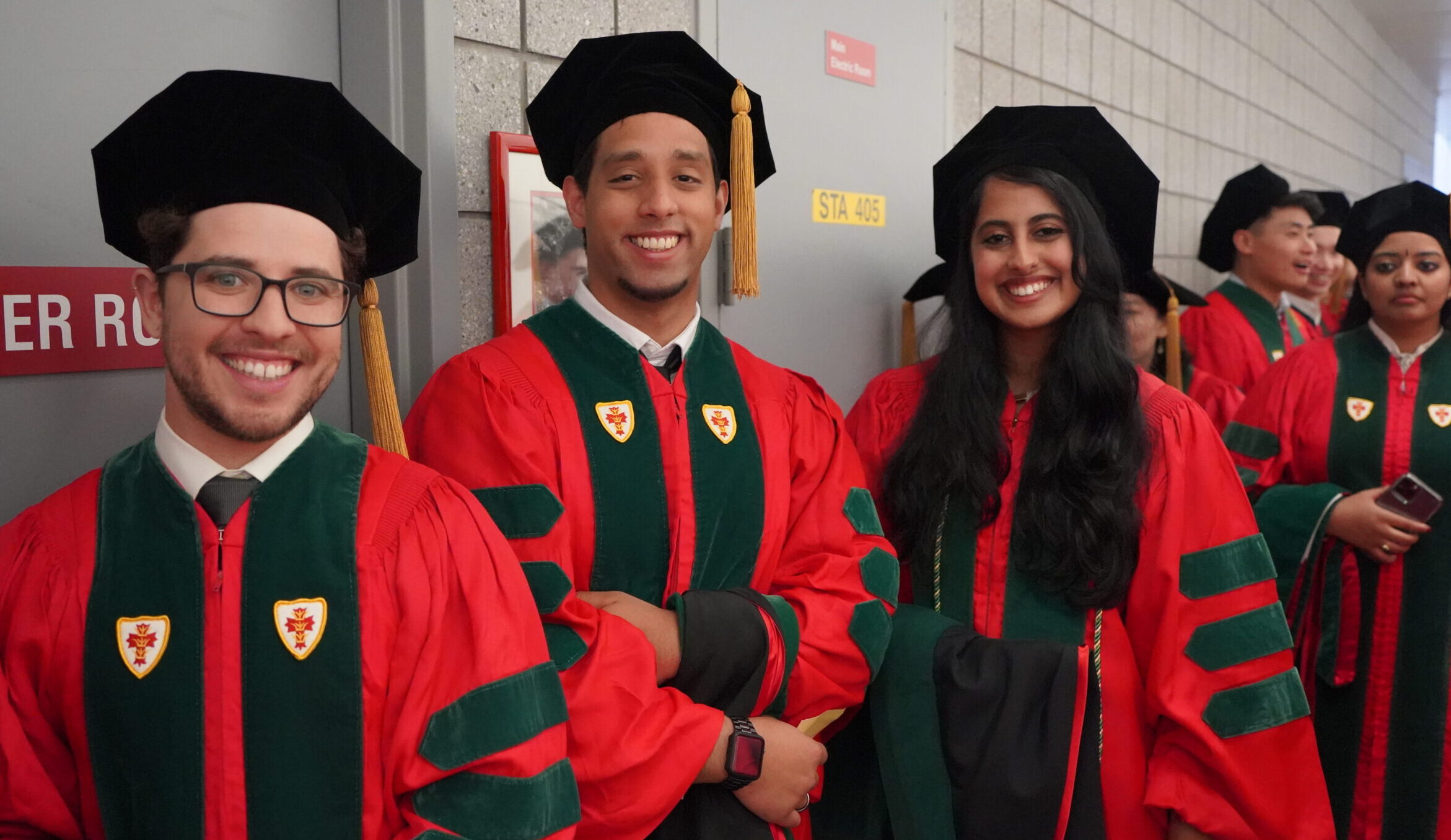
“Healthcare is a basic human right, not a privilege,” she said. “Our profession should focus on improving health beyond the healthcare system – in communities – and focus on prevention of disease with equal focus as treatment of disease,” said Bharel.
At the level of patient interactions, Bharel told students to turn away from their screens, look their patients in the eyes and allow them to tell their story.
“Choose kindness and selflessness. Listen to your patients with humility. Connect your scientific endeavors to our most pressing health issues,” she said.
See more on Facebook.

IMAGES
VIDEO
COMMENTS
With the introduction of the PhD, MD/PhD and DMD/PhD programmes, University Medicine Greifswald offers high-achieving graduates of medicine, dentistry, and natural and life sciences the opportunity to conduct a structured doctorate with a focus on research, and thus excellent prospects for their further professional career and the continuation of an academic career, especially in an ...
Graduate Academy of the University of Greifswald. Dr. Michael G. Schöner. Tel.: +49 3834 420 1618. graduiertenakademie @uni-greifswald .de. The Graduate Academy offers junior researchers at the University assistance and support during their doctoral or postdoctoral studies.
Responsible for these pages. Graduate Academy of the University of Greifswald. Dr. Michael G. Schöner. Tel.: +49 3834 420 1618 graduiertenakademie uni-greifswald de. The Graduate Academy offers junior researchers at the University assistance and support during their doctoral or postdoctoral studies.
News. Introduction of the PhD, MD/PhD and DMD/PhD. Since August 25, 2020, it has been possible to obtain the degrees MD/PhD, DMD/PhD or PhD at University Medicine Greifswald - in addition to the doctoral degrees of Dr. med. and Dr. med. dent. The structured, research-oriented doctoral programme differs from previous doctoral programmes in ...
Jens FIELITZ, Professor of Molecular Cardiology | Cited by 4,210 | of University of Greifswald, Greifswald | Read 123 publications | Contact Jens FIELITZ
Anfang April fand die erste Verteidigung einer Dissertation statt, die über das dreijährige strukturierte Promotionsprogramm „PhD, MD/PhD, DMD/PhD" der Universitätsmedizin Greifswald (UMG) ermöglicht wurde. Dieses Programm steht offen für leistungsstarke Absolvent*innen der lebens- und naturwissenschaftlichen Fächer, der Human- sowie Zahnmedizin.
Formulare und Ordnungen. Satzung zur Neuregelung des Promotionswesens der Universitätsmedizin Greifswald vom 24.08.2020, 1. Änd. 23.11.2021. Erste Satzung zur Änderung der Promotionsordnung PhD, MD/PhD und DMD/PhD vom 23.11.2021. Dr. med. und Dr. med. dent.
Graduate Academy of the University of Greifswald. Dr. Michael G. Schöner. Tel.: +49 3834 420 1618. graduiertenakademie @uni-greifswald .de. The Graduate Academy offers junior researchers at the University assistance and support during their doctoral or postdoctoral studies.
Frank TOST | Cited by 1,877 | of University of Greifswald, Greifswald | Read 231 publications | Contact Frank TOST
Henry VÖLZKE, Head of Department | Cited by 53,674 | of University of Greifswald, Greifswald | Read 1008 publications | Contact Henry VÖLZKE
Johannes REICHERT, Consultant | Cited by 3,623 | of University of Greifswald, Greifswald | Read 77 publications | Contact Johannes REICHERT
Peter HINZ, Deputy Head | Cited by 1,422 | of University of Greifswald, Greifswald | Read 90 publications | Contact Peter HINZ
Universitätsmedizin Greifswald · Internal Medicine A. MD/PhD. Contact. Connect with experts in your field. Join ResearchGate to contact this researcher and connect with your scientific community.
MD/PhD, physician at Greifswald University Hospital. · TRAN Q. TRUNG is currently doing a research<br><br>project in MD.PhD program at Greifswald Univer-<br>sity of Medicine, Germany. He is one of the young<br><br>scientists who was selected globally to meet 70<br><br>Nobel Laureates at the 70th Lindau Nobel Meet-<br>ing, where he can join a ...
Hans-Robert Metelmann currently works at the Department of Oral and Maxillofacial Surgery / Plastic Surgery, University of Greifswald. Hans-Robert does research in Clinical Trials, Oral and ...
Greifswald Area, Germany -Greater Salt Lake City Area Education American Board of Preventive Medicine 2021 - Present 2018 - 2020. 2018 ... Liked by Hansjorg Schwertz, MD, PhD, MOH, CMRO.
14 German Center for Cardiovascular Research, Partner Site Greifswald, University Medicine, Greifswald, Germany. 15 Departments of Medical Sciences and Cardiology, Uppsala University, ... MD, PhD, Department of Cardiology, University Heart and Vascular Center Hamburg, Martinistr 52, Hamburg 20246, Germany ...
The May 16 convocation at BU's Track & Tennis Center bestowed 35 PhD, 144 MD, four combined MD/PhDs, three combined MD/MBAs, one MD/JD and two MD/OMFS (Oral Maxillofacial Surgery) degrees. Fifteen students earned cum laude honors, five magna cum laude and two students, Jonathan Berlowitz and Sarah Golden, graduated summa cum laude. "The ...